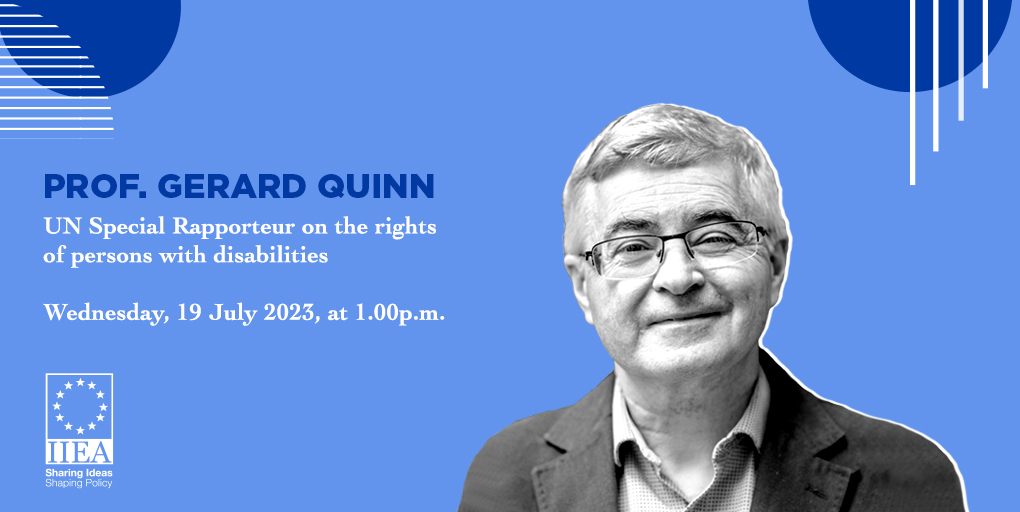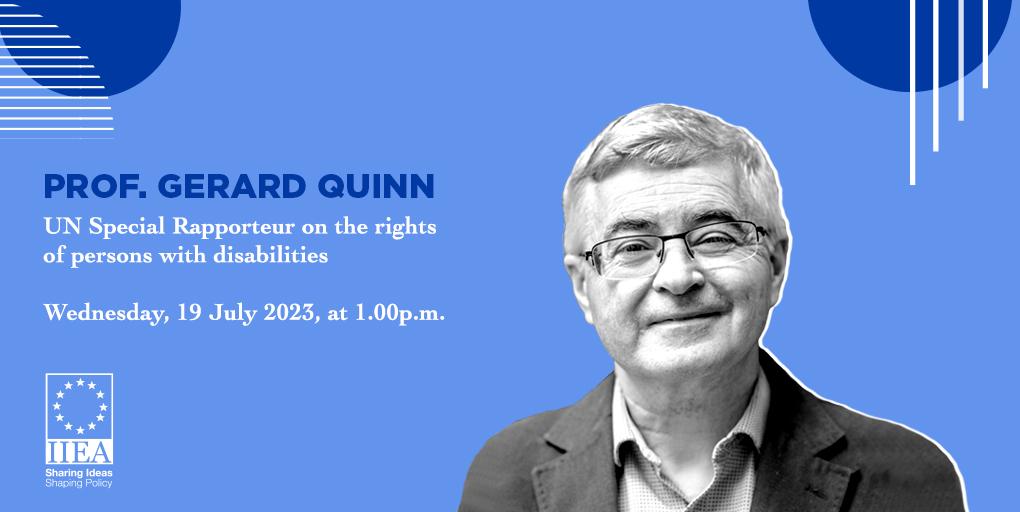Ireland’s obligations under the UN Convention on the Rights of Persons with Disabilities

Professor Gerard Quinn, UN Special Rapporteur on the rights of persons with disabilities, discusses Ireland’s obligations, strengths, and shortcomings, under international human rights treaties, in particular the United Nations Convention on the Rights of Persons with Disabilities (UNCRPD), which was adopted by the United Nations in 2006. The UNCRPD is the first international, legally binding instrument setting minimum standards for the rights of people with disabilities.
The Convention followed decades of work by the United Nations to change attitudes and approaches to persons with disabilities. It is a human rights instrument with an explicit, social development dimension which adopts a broad categorisation of persons with disabilities and reaffirms that all persons with all types of disabilities must enjoy all human rights and fundamental freedoms. The Irish Government signed the Convention in 2007 and in March 2018 the Convention was ratified.
About the Speaker:
Professor Gerard Quinn was appointed the UN Special Rapporteur on the rights of persons with disabilities by the Human Rights Council in October 2020.
A graduate of Harvard Law School, the King's Inns and the National University of Ireland, Professor Quinn formerly held a chair at the National University of Ireland where he founded and directed the Centre on Disability Law & Policy. In Ireland, he also served as a member of the Commission on the Status of People with Disabilities (1992-1996) which was composed of a majority of persons with disabilities.
He has received three awards for his work on international disability Law - from Rehabilitation International (RI), the US International Council on Disability (USICD), and the European Association of Service Providers (EASPD).

